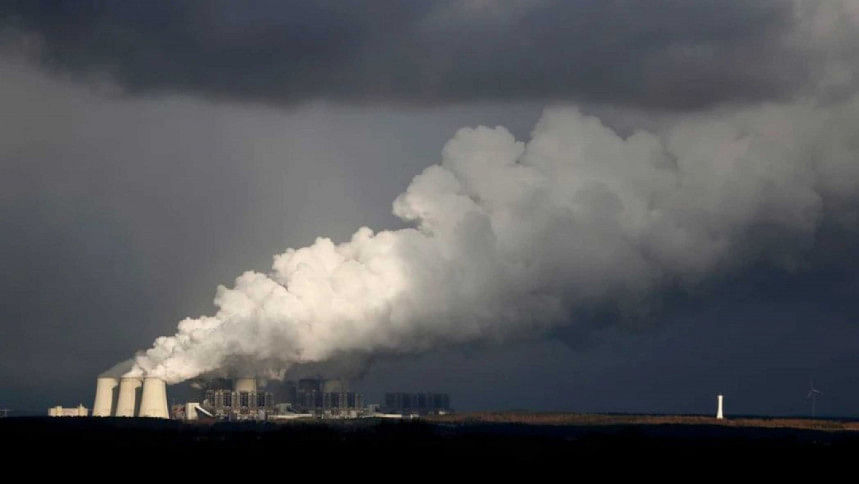World must combat climate change, but not at the expense of poverty reduction

In the wake of the completed climate summit in Glasgow, it is worth considering the risks to poor countries of climate alarmism.
What citizens in poor countries may not realise is that climate change has become a default religion for many rich, white people. Take the example of teenage Swedish activist Greta Thunberg. She has become an iconic, prophet like figure inspiring millions, including encouraging children to strike from attending school.
Energy expert Michael Schellenberger, author of Apocalypse Never: Why Climate Alarmism Hurts Us All, writes "climate alarmism is powerful because it has emerged as the alternative religion for supposedly secular people, providing many of the same psychological benefits as traditional faith."
These kinds of actions are grounded in good intentions, but the religious-like fervour also means the narratives of good and evil are projected into the climate debate. Coal and gas are painted as evil, while renewables acquire an association with moral superiority. Businesses and some of the richest people on the planet eagerly promote renewable energy to prove their public virtue.
In my home country of Australia, wealthiest billionaires -- Andrew Forrest, Michael Cannon Brookes and Simon Holmes à Court -- have become the faces of renewable energy.
But very few of the rich, white people living in the West have any clue of the realities of the developing world. Climate activism is a new kind of "white man's burden" where citizens of the developed world feel like they are more enlightened and are acting to save the poor. Again, this might be grounded in good intentions, but are often naïve.
A perfect example of these tensions was illustrated a few years ago at Davos.
Al Gore attacked the Bangladeshi Prime Minister Sheikh Hasina for developing a coal plant near the Sundarbans. Hasina stood her ground responding forcefully: "We have to provide energy to our people."
Hasina went on to add that rich Westerners seem to care more about animals and their own feelings than they did for her poor citizenry. This rebuke from the leader of a country among the most threatened by rising sea levels was especially powerful.
Likewise, the Bangladeshi High Commissioner to Australia made a similar point imploring the Australian government to export its coal to Bangladesh.
"There is enormous opportunity for export of Australian coal and LNG to Bangladesh, given Bangladesh's sustained energy demand," said Sufiur Rahman to Nine newspapers last year. "If these are added to the traditional traded items, Bangladesh could emerge as a major trading partner of Australia soon."
So far, the offer has not been taken up primarily due to domestic political sensitivities about exporting more coal.
Bangladeshi expatriates living in the West can play an important role as bridges between the global North and South. Much like the large Indian and Chinese populations living North America and Britain, they can help communicate the nuances of striking a balance between maintaining economic growth and combatting climate change.
Bangladesh is a pivotal country in the climate change debate.
Well-known for being low lying, prone to flooding and soil erosion it is already suffering the effects of rising temperatures. The country has engaged Dutch experts, a country well known for adapting to its low lying land. A research report by economists Alexander and Elena Golub found that mangrove protection, early warning systems and the building of polders -- tracts of land protected by dikes -- can all help adaptation to rising sea levels.
But the reports also found all of these measures are trumped by the country becoming wealthier. The roads, schools, housing, and reliable power needed for this to occur cannot be done by green energy alone.
Climate change is outwardly a technological and political battle to remake developed economies.
But it also represents an impasse between the developing and developed worlds.
Several centuries of colonialism and the industrial revolution are the unsaid undercurrent of the negotiations. Poor countries are determined to extract adequate compensation for being on the frontline of climate effects, yet contributing only a fraction of the offending emissions. There is also the promise of a 100 billion dollars as compensation from rich to poor countries, outlined in the Paris accords, but yet to be delivered.
"Making good on a promise made more than a decade ago is setting a pretty low bar for a successful COP26," Teresa Anderson, climate policy coordinator at ActionAid International, a nongovernmental group, said in a statement.
But there is a real risk that climate alarmists will threaten the proud economic growth of poor countries like Bangladesh if they cannot access cheap, reliable power. Despite assertions in rich countries like Australia that renewable energy like solar or wind is now cheaper than fossil fuels, this is simply not the reality in the developing world.
We are already seeing this with sky high energy prices and interruptions in the power supply across Europe, China and India. This occurred in part because climate activists blocked construction of new gas plants that could have supplied energy at lower emissions than coal.
There is no question the world must act to combat climate change, but not at the expense of poverty reduction. Countries like Bangladesh have a powerful moral authority to temper the excesses of the most rigid activists in rich countries.
The writer is an Australian based psychiatrist, author of The Exotic Rissole, and founder of website www.bddiaspora.com.

 For all latest news, follow The Daily Star's Google News channel.
For all latest news, follow The Daily Star's Google News channel. 



Comments